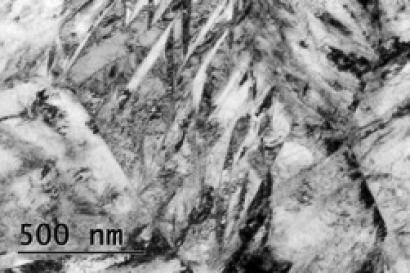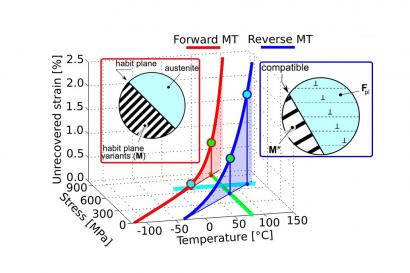Properties of line crystal defects – dislocations, that control material behaviour from plastic deformation to mechanisms of fracture, are directly related to atomic structure of dislocation cores. Theoretical models for their investigation are based on the quantum theories of interatomic forces that are further used in mesosopic analysis of interactions among dislocation components. We have applied this approach to explain different behaviour of materials with the same crystal structure (B2 alloys) but different properties of planar defect of antiphase boundary types. A large number of dislocation structures can occur in di-silicides (e.g. MoSi2 with the C11b structure) that are considered for structure parts subjected to extremely high temperatures.
Dislocation core structure and mobility
Text
Theme is contributed to by
Phone:
+420 266 05 2147
![MCM_03.png Non-planar dislocation in the structure C11b dissociated into three planes from the zone <331] in a transition to the (110) slip plane.](https://webarchiv.lib.cas.cz:443/wayback/20210903173925im_/https://www.fzu.cz/sites/default/files/styles/media_embed_700/public/2020-03/MCM_03.png?itok=35iL88Jk)



